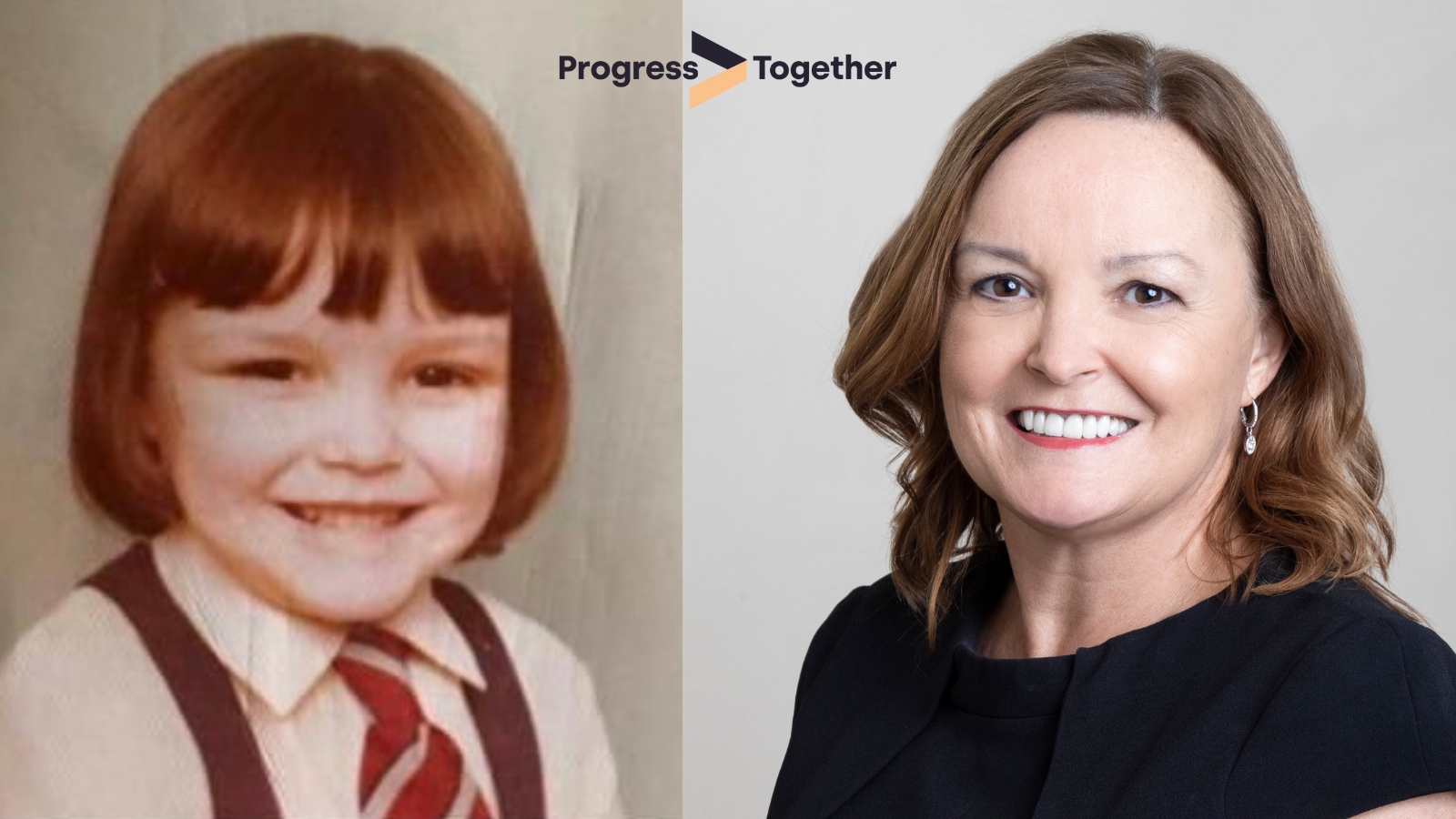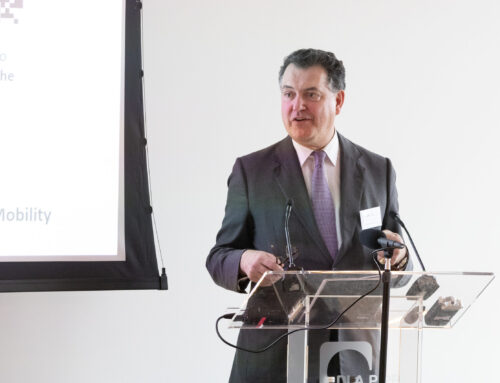“I left school at 17 to look after my younger siblings. That’s why my passion for social mobility is so strong.”
When her mum died, Tracy Garrad was forced to leave school and look after her four younger siblings.
Still a child herself, Tracy never imagined that one day she’d be CEO of some of the UK’s most well-known financial brands. But that’s how it turned out.
Tracy started life in a council house in Blackpool, where she lived with her parents, grandparents and four younger siblings.
She said: “Money was always very tight and the council estate we grew up on was one of the poorest in the country. We were on free school meals and the area was known for teenage pregnancies and drug use.”
The family got by with her father working as a bus driver and her mother taking on part time jobs to fit in with family life and top up to the stretched family income.
‘Too big for my boots’
As she was about to move to secondary school, Tracy passed the 11+ exam which would have enabled her to attend a private school on a scholarship. However, it didn’t work out due to her dad’s strong working class beliefs. She said: “My father wouldn’t let me go to private school, on the basis that I might get too big for my boots. So, although I was a capable student, I never got as far as thinking about university or careers.”
Things took a turn for the worse just after Tracy passed the entrance exam.
She said: “Unfortunately, two major life events shaped me. The first was that my parents split up very acrimoniously when I was 11 , and we moved with my mum to Herefordshire and I never saw my father again.
“The second was that my mum then became seriously ill and sadly died when I was a teenager. So I left school at 17 to look after my younger siblings. That’s why my passion for social mobility is so strong.”
Role model
After a rocky road which resulted in the siblings eventually being split up, Tracy found herself in a customer services job at a bathroom company. Little did she know that this would trigger a desire to succeed which would eventually land her some of the top jobs in finance.
Tracy said: “By sheer good fortune, the person I worked for spotted something in me within about three weeks and took me to one side to ask why I wasn’t at university.
“I unburdened myself and told her everything that had happened. She was looking at me from the perspective of someone who had a daughter of a similar age and wanted to help. She persuaded the company to give me some time off each week to attend college. And that was how I got my first business and finance studies qualification.
“The fact that this woman who was a role model to me had gone out of her way to help me. massively boosted my confidence.
“I didn’t have a plan. I didn’t know what the future could hold, so the fact that she believed in me and cared enough to help me was a real inspiration.”
Career development
Tracy went on to work in different sectors, including automotive, home improvement and technology, before gaining a company sponsorship, whilst working for Santander, to study at London Business School, which led to further major career development steps in financial services.
After 10 years with Santander, and a move to global banking giant HSBC, Tracy continued to rise through the ranks and eventually became CEO of First Direct, followed by 2 years as CEO for HSBC Channel Islands and Isle of Man, CEO of Axa Health and now CEO Designate of Aviva Canada.
Her busy schedule also included over 4 years on the board of the Jersey Financial Services Commission, Membership of the Women in Finance Charter Accountable Executive Taskforce, and Chair of the Association of British Insurers Board Sub Committee for DE&I. She is currently a Non-Executive Director of the London Stock Exchange and a Board Member of Progress Together, having been a member of the City of London’s Taskforce for Socio Economic Diversity during the two years prior.
No safety net
Tracy said: “At the start of my working life it was about the basics of survival – about having no other options, no safety net. As my confidence grew I had no boundaries, no self-imposed limitation. I just kept saying to myself ‘what can I do next?’”
“During my career, I never lied about my background. But no one ever wondered why, when everyone was talking about their gap year and skiing holidays, I said nothing. I was self-conscious of that but I never felt confident enough to say that my experience had been different. I definitely haven’t followed the typical route.”
As a Progress Together board member, Tracy is now happy to open up about her lived experience in the hope that it will give others from lower socio-economic backgrounds the belief that they can succeed, and to demonstrate to financial services firms that someone’s background should not affect their career prospects.
Tracy’s advice to financial services firms:
- Giving support to someone who’s had a tough start generates a tremendous amount of loyalty in them. Don’t cut off a huge talent pool by failing to address socio-economic diversity.
- Collecting employees’ socio-economic data is the starting point to enable you to understand the make-up of your workforce. You can’t manage what you don’t measure.
- Start with a campaign around socio-economic data disclosure and all the communication and engagements that comes with that. How can you make people feel comfortable sharing their data. Look at the language and how that can affect people’s willingness to share their information. Address the psychological challenges regarding people’s willingness to share their data.
- Record socio-economic data then create a plan based on that data. Identify the interventions you need to put in place and implement them.
Progress Together currently represents 30% of the financial services workforce, with companies working together to level the playing field for people from all socio-economic backgrounds.
To join, visit www.progresstogether.co.uk/member




